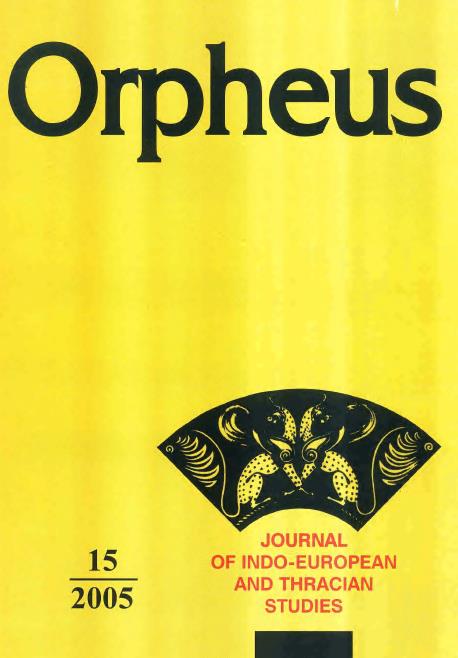
We kindly inform you that, as long as the subject affiliation of our 300.000+ articles is in progress, you might get unsufficient or no results on your third level or second level search. In this case, please broaden your search criteria.

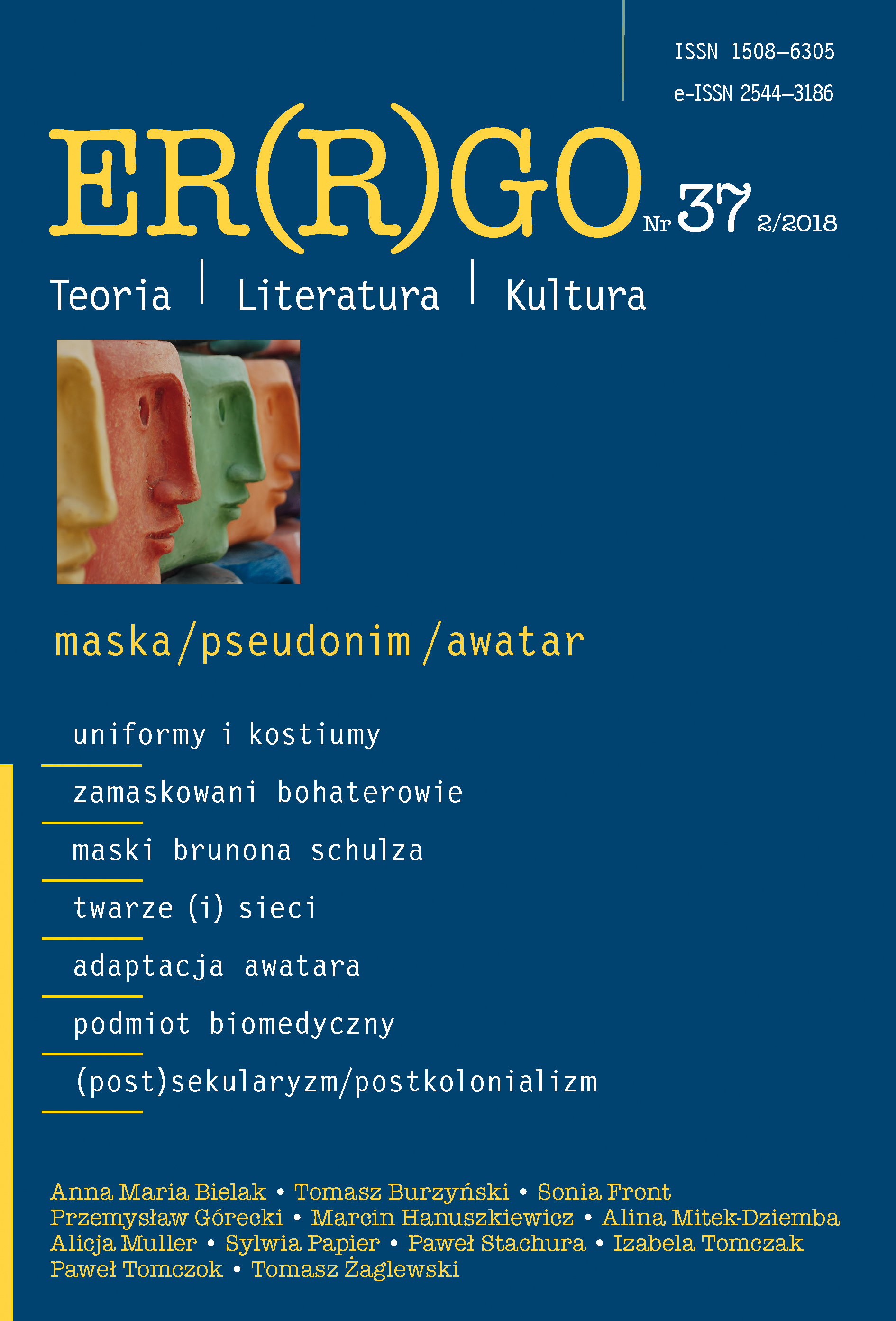
The article discusses possibilities of character building in computer games, which for many gamers is a way of expressing and modifying their own identity. Games differ in the degree of freedom given to a gamer in shaping the identity of the in-game character, or avatar, and in many games avatar-formation is an important part of game structure, providing a lot of game satisfaction, and requiring as much time and involvement as the game-play itself. The games under discussion are adaptations of H.D. Thoreau’s „Walden”. The choice of games stems from the observation that identity, freedom, and limitation are important themes of Thoreau’s work, which is reflected in the games under discussion. The three games discussed in the article are, thus, treated as modernist and postmodernist readings of a literary text, giving the reader/gamer more or less limited possibilities of shaping the character/avatar.
More...
Report from scientific conference regarding semicentennial of death of prof. dr. Esad Pašalić (Sarajevo, 20 / 21. 10. 2017)
More...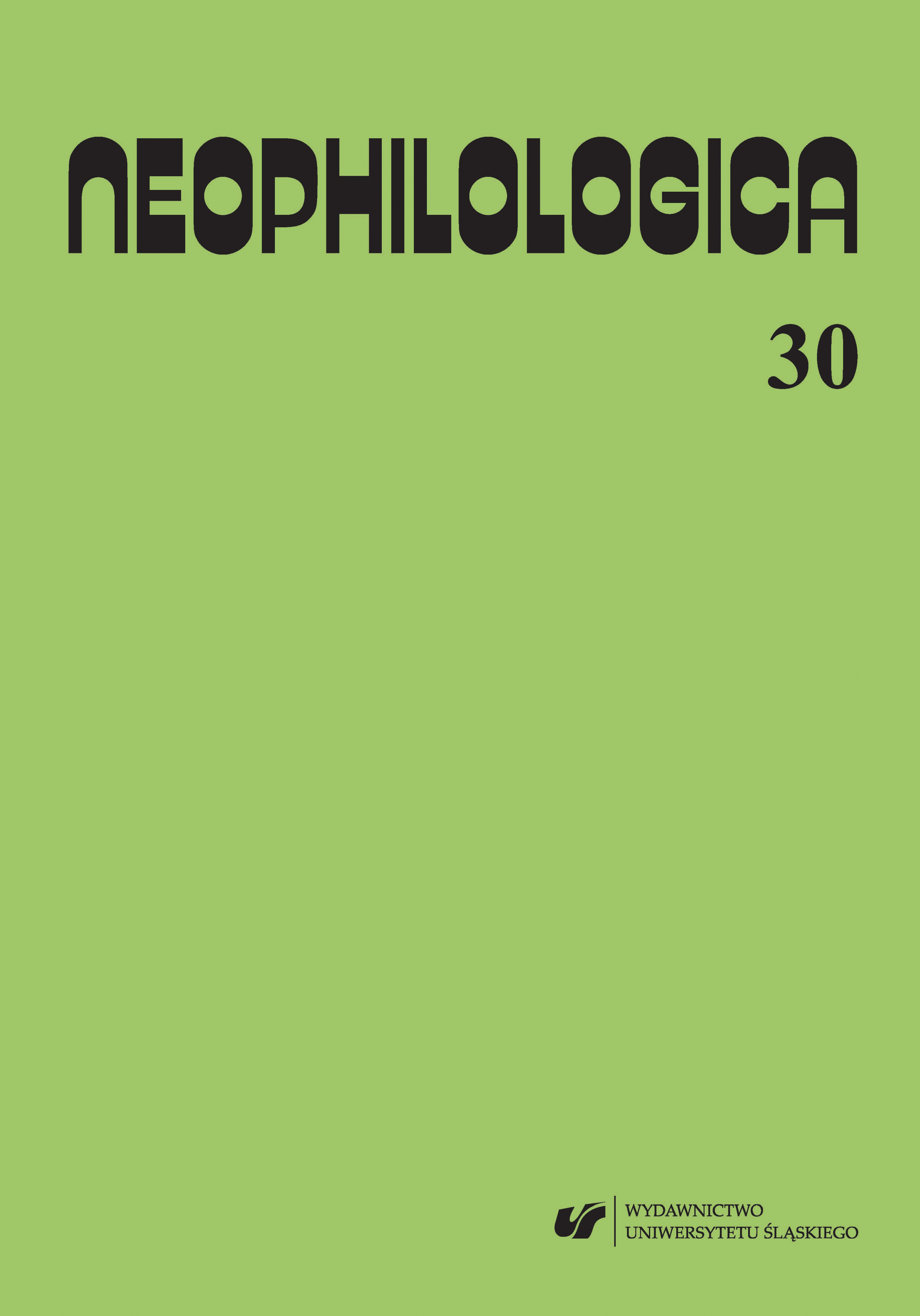
This paper focuses on discursive routines used to express apology in email exchange. We adopt a contrastive (French-Polish) and intercultural approach, integrating apology in the politeness theory. We start from the hypothesis of cognitive grammars (see e.g. L a nga cke r 2008a and 2008b) that apology, even if it includes a shared conceptual core in various languages, presents for each language an original configuration that specifically reorganizes semantic constituents. The results of the research previously conducted by Dz ia d k iew icz (2007) show that, in the case of apology, the extent of the polite scale in Polish is not the same as in French. The corpus is composed of interpersonal emails (about 200 mails per language) collected in both languages, in professional or private context.
More...
In this article we compared the introductory verbs of feelings in French (sentir, ressentir, éprouver) and in German ( fühlen, empfinden, (ver)spüren) across the time in order to bring to light the affinities between these verbs. To this end, we measured the principal collocations of these verbs and determined for each verb the most salient ones. This allowed us to determine affinities between French and German verbs according to the time. We also noticed the kind of feelings, which are more connected to feeling auxiliary verbs, notably pain, joy and pleasure, whereas emotion words such as anger and fear are less present.
More...
In this paper, a contrastive analysis of a certain number of intensifiers belonging to the conceptual domain //FOLIE// (//MADNESS//) in French and in Polish is carried out. Basing on a study of corpora, the author ascertains their degree of equivalence on different levels (conceptual, semantic, morphological-syntactical, that of frequency).
More...
The following paper aims at describing the metaphorical conceptualization of musica in the cognitive approach. The linguistic corpus consists of texts of music theory and music history manuals and texts of interviews with music artists. The chosen methodology, cognitive semantics, allows to explain how the concept of musica is expressed by means of the metaphor of human being. The musica is recognized as a human organism which has its physicality (materiality of body) and psychology (immateriality of mind).
More...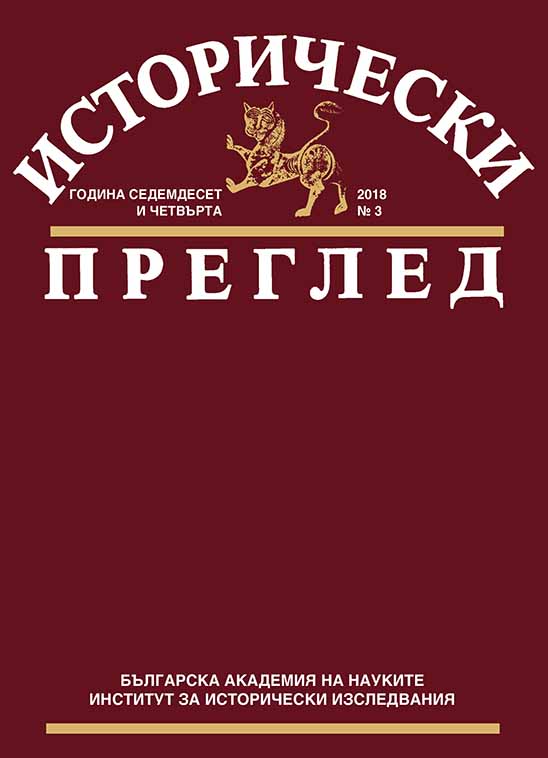
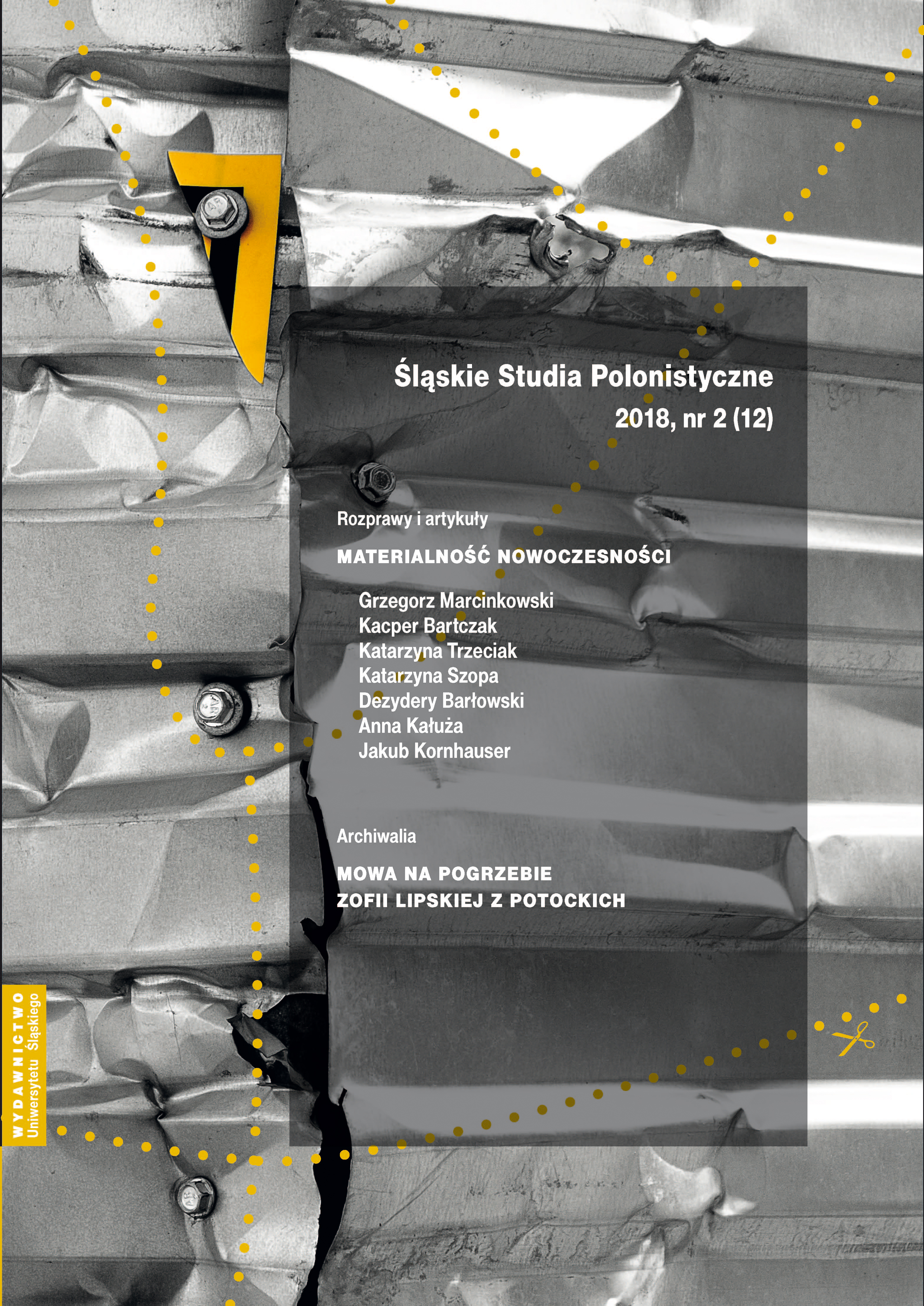
The author of the article tries to reconstruct both the way of perceiving subjectivity in the works of Walter Benjamin and the ways in which the tension between identity and history is manifested in his writings. The article concentrates on the concept of shock, developed by the philosopher during reading Baudelaire and Kafka. With this concept, it is possible to describe the transition from the narrative conception of experience to “point experience” constituted by series of sudden unconnected impulses. The moment conducing to this transition was the I World War which for Benjamin – as well as for others significant thinkers of that time – constituted an important turning point.
More...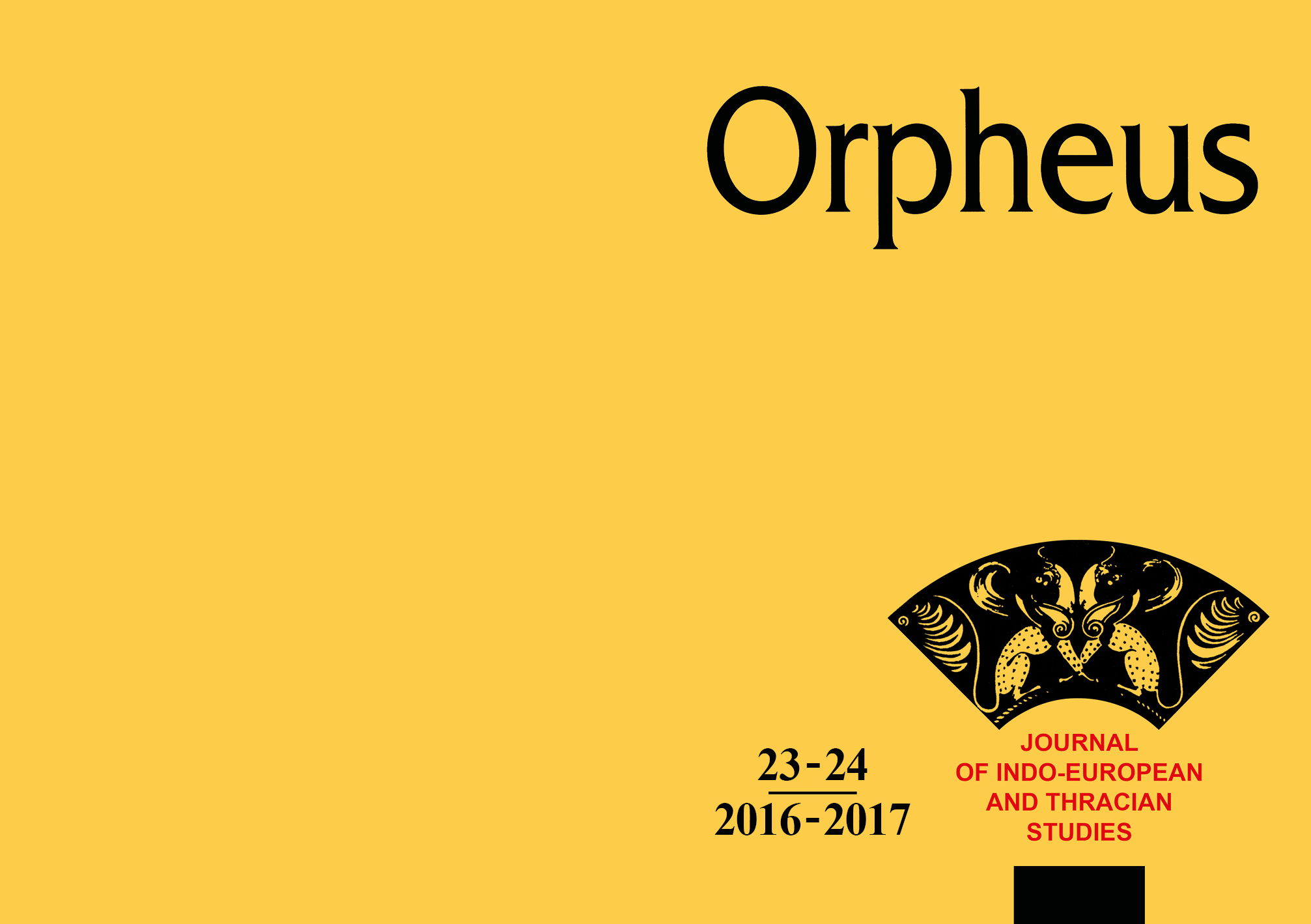
The paper discusses the hypothesis launched about the existence of a Getic language that was different from Thracian and from the so-called Dacian-Moesian language. The analysis was made on the basis of two criteria: socio-linguistic – the evidence of ancient authors on the speech of the Getae compared to the other Thracians, and internal linguistic – data on the phonetics and lexical material in the onomastic finds from the lands of the Getae, compared to the onomastics from the remaining Thracian territories. It becomes clear from the examples that no substantial differences – either phonetic or lexical – existed between the onomastics of the region inhabited by Getae and the one from the areas inhabited by the other Thracian tribes, which does not give grounds to refer to the Getic language as independent.
More...






The article presents discussions on the shape of Polish literary studies which were conducted in connection with the creation of the „Historia literatury polskiej” [History of Polish Literature] by Feliks Bentkowski. Both the circumstances of the creation of Bentkowski’s work and its reception are presented, with special attention paid to their institutional context, professionalization of philology and bibliography as sciences, as well as to relations between the polemicists. The main part of the article is the reconstruction of the semantics of the historical term “literature”, which is the subject of Bentkowski’s, Jan Śniadecki’s and Gotfryd Ernest Groddeck’s statements. The author advances a thesis that the attempts to define the term “literature” in their texts correspond, in fact, with voices in the debate on the concept of a scientific character of literary studies, which at that time constituted itself as a separate discipline.
More...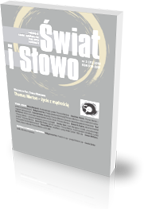
In the article authors presented the excerpt of the research on the regional education. Authors concentrated on the substantial cultural issue - on the local dialect Trójwieś Beskid (language used within the limits of Cieszyn Silesia). Authors moved from the survey conducted amongst the younger generation of residents of Koniaków, Jaworzynka and Istebna. They conducted research also amongst teachers working at the local school. Observation concerned the ratio to the local dialect and the need of educating in this respect. Authors put interesting data into the article – mentioned attitudes of contemporary residents Trójwieś in view of the local dialect, and also mentioned nasty negotiations next time.
More...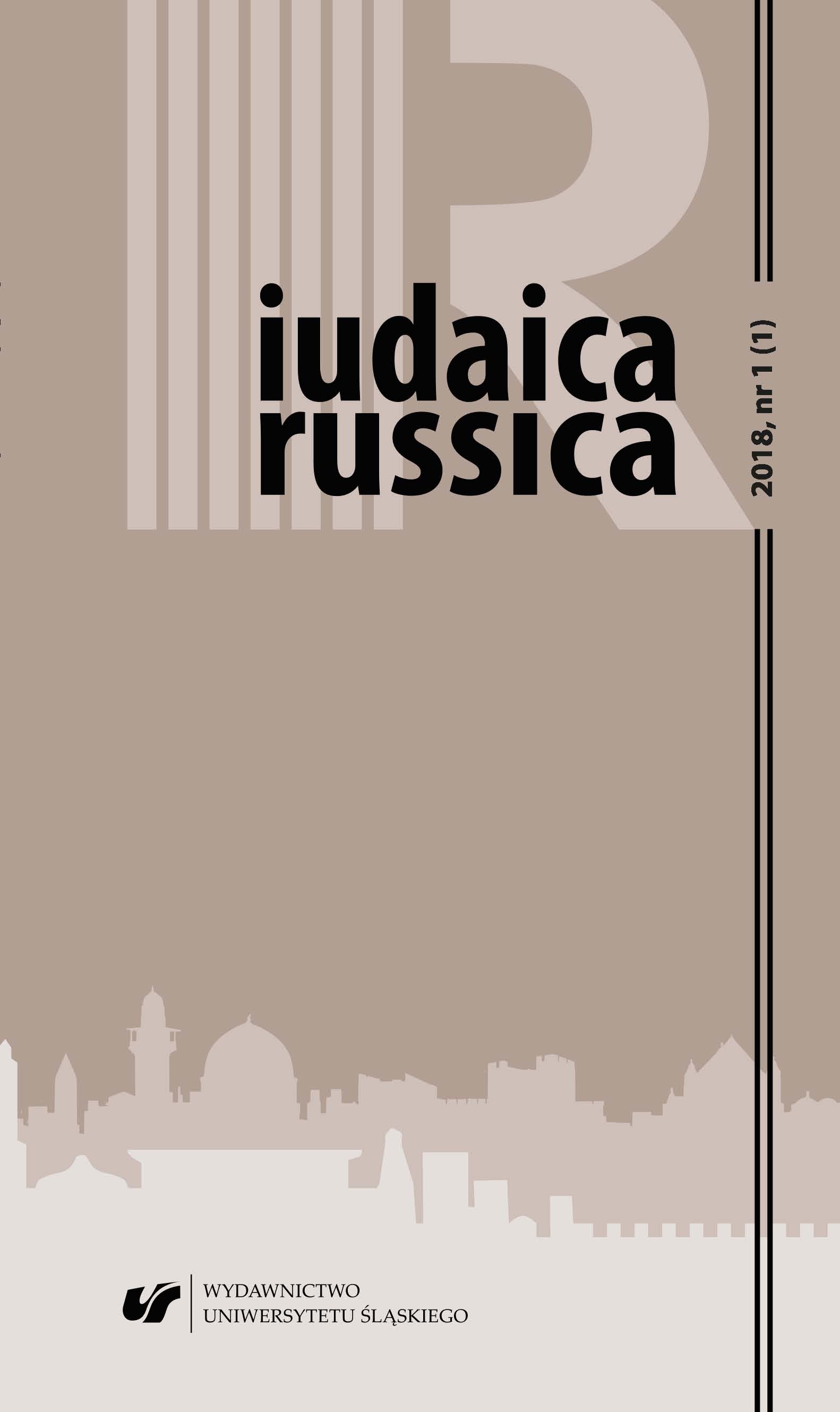
A comprehensive study of “The Jewish question in modern novel” printed in “Illustrated Weekly Newspaper” (“Tygodnik Ilustrowany”) in 1879 by Waleria Marrené (1832–1903) — Polish writer and publicist, critic and feminist of the positivist age, has been analyzed. The author in great depth goes into the so-called Jewish question in modern novel, represented by examples from four European literatures: French, German, English and Polish. Valeria Marrené analyses the conflict between the local community and the Jewish-origin newcomers and indicates differences in presenting subject matters interesting for her.
More...
Paul Celan’s (1920–1970) poetic cartography builds on the “holograms of darkness” (thus addressed by Amy Colin, an American Celan scholar), the metaphorical constellations which map the experiences of suffering, twilight and death. The poetry “after Shoa” of the Romanian poet of Jewish descent, writing in German, constitutes a particular landscape of his musical “death fugue” in which human suffering is depicted in surrealist images that silently express of the trauma of the Holocaust. Celan’s theodicy is created as the “rhetoric of the ineffable”, a silent dialogue with the Other (Lévinas) but also the absent Other, the No one with whom the poet converses and who becomes the addressee of his “poems-prayers” or “no-poems” (noems), as he calls them. It is the absent Other the poet worships and celebrates in his “poetry of silence”. Language also experienced suffering but was “enriched by it” and now can be heard “on the other side of silence”. Celan’s poetry is firmly anchored in the memory of the Holocaust and Jewish people’s traumatic experiences. To soothe his pain, the poet constantly returns to the “Brunnenland”, his birthplace located in Bukovina where he always found the spring that fueled his poetic soul and heart. The poet’s favourite metaphor is that of the meridian which marks the reference place on the cartographic grid of all his poetic images.
More...